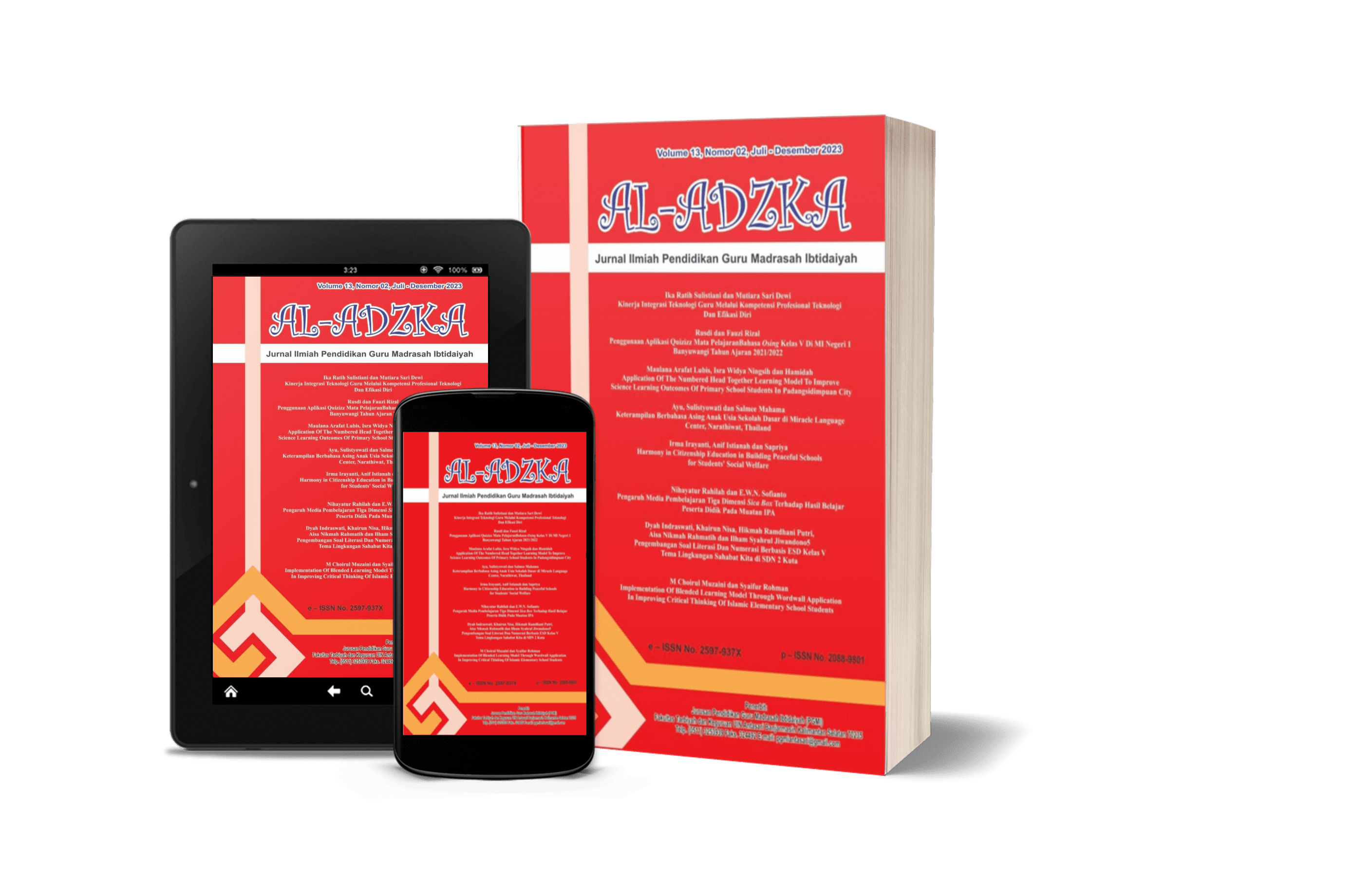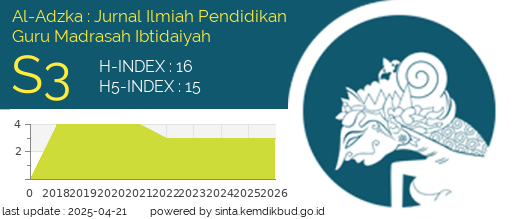Primary School Curriculum Reform in Türkiye: Analyzing Recent Innovations in National Education Policies
DOI:
https://doi.org/10.18592/aladzkapgmi.v15i1.16298Keywords:
Primary School, Curriculum Reform, Competency-Based Education, 21st Century Skills, Education PolicyAbstract
Türkiye has recently reformed its curriculum to emphasize 21st-century skills, integrating critical thinking, digital literacy, and values education. These efforts culminated in the 2023 Turkish Century Maarif Model, which balances modernization, national identity, and global frameworks like the OECD Learning Compass and UNESCO’s Education for Sustainable Development Goals. This study aims to critically analyze the key features, implementation strategies, and practical implications of the Turkish Century Maarif Model within the context of global frameworks such as the OECD 2030 Learning Compass and the Sustainable Development Goals. Using qualitative research design, the study employed document analysis and thematic content analysis to examine official policy papers, national education reports, and peer-reviewed literature published between 2018 and 2024. Findings indicate that while the reform promotes innovation, digital literacy, and student-centered pedagogy, several systemic barriers persist. These include inadequate teacher training, regional disparities in educational infrastructure, and misalignment between assessment systems and new pedagogical goals. Bridging the gap between policy and practice requires inclusive teacher professional development programs, equitable investment in digital infrastructure, and a restructured assessment framework that supports competency-based learning.References
Ağlar, C., Arslan, A., & Şahbaz, A. F. (2024). Analysis of theses on Turkish language teaching curriculum in Türkiye: A document analysis. International e-Journal of Educational Studies, 8(1), 45–61. https://doi.org/10.31458/iejes.1324803
Akyüz, Y. (2020). Türk Eğitim Tarihi: M.Ö. 1000 – M.S. 2020 (21st ed.). Pegem Akademi Yayıncılık.
Ball, S. J. (1993). What is policy? Texts, trajectories and toolboxes. Discourse: Studies in the Cultural Politics of Education, 13(2), 10–17. https://doi.org/10.1080/0159630930130203
Biesta, G. (2020). Educational research: An unorthodox introduction. Bloomsbury Academic. https://www.bloomsbury.com/uk/educational-research-9781350097988/
Bozkurt, A., & Sharma, R. C. (2021). Emergency remote teaching in a time of global crisis due to CoronaVirus pandemic. Asian Journal of Distance Education, 16(1), 1–6. https://doi.org/10.5281/zenodo.3778083
Braun, A., Maguire, M., & Ball, S. (2011). Policy enactments in the UK secondary school: examining policy, practice and school positioning. Journal of Education Policy, 25(4), 547–560. https://doi.org/10.1080/02680931003698544
Brighton, C. M., Hock, M., & Moon, T. R. (2022). Project-Based Assessments: Tasks and Rubrics. In Handbook on Assessments for Gifted Learners. Routledge.
Chidinma Favour Chikwe, Adebukola Olufunke Dagunduro, Olanike Abiola Ajuwon, & Ayo Amen Ediae. (2024). Sociological barriers to equitable digital learning: A data-driven approach. Comprehensive Research and Reviews in Multidisciplinary Studies, 2(1), 027–034. https://doi.org/10.57219/crrms.2024.2.1.0038
Creswell, J. W., & Poth, C. N. (2018). Qualitative inquiry and research design: Choosing among five approaches (4th ed.). SAGE Publications.
Dilsora, Q. (2024). Principles Of Continuous Professional Development of Educators in The Context of Inclusive Education. International Journal of Pedagogics, 4(11), Article 11. https://doi.org/10.37547/ijp/Volume04Issue11-38
Djamalovna, D. M. (2024). Methods and Tools for Assessing Student Competencies. Current Research Journal of Philological Sciences, 5(10), Article 10. https://doi.org/10.37547/philological-crjps-05-10-04
Dönmez, İ., & Gülen, S. (2023). Science Curricula and Science Teachers Training in Türkiye: Past, Present and Future. Necatibey Eğitim Fakültesi Elektronik Fen ve Matematik Eğitimi Dergisi, 17(1), 1–25. https://doi.org/10.17522/balikesirnef.1371492
Dunagan, L., & Larson, D. A. (2021). Alignment of Competency-Based Learning and Assessment to Adaptive Instructional Systems. In R. A. Sottilare & J. Schwarz (Eds.), Adaptive Instructional Systems. Design and Evaluation (pp. 537–549). Springer International Publishing. https://doi.org/10.1007/978-3-030-77857-6_38
Fosnot, C. T. (2013). Constructivism: Theory, perspectives, and practice (2nd ed.). Teachers College Press.
Foykas, E. (2024). How Can the Inclusive School Leader Promote a Democratic Society? The Case of Greek Schools. European Journal of Education and Pedagogy, 5(3). https://doi.org/10.24018/ejedu.2024.5.3.842
Fullan, M. (2007). The new meaning of educational change (4th ed.). Teachers College Press.
Gilligan, C. (1982). The contribution of women's thought to developmental theory: The elimination of sex bias in moral development research and education. https://files.eric.ed.gov/fulltext/ED226301.pdf
Kim, Y. C. (2016). Shadow education and the curriculum and culture of schooling in South Korea (Vol. 10, pp. 978-1). New York: Palgrave Macmillan US. https://link.springer.com/book/10.1057/978-1-137-51324-3
Kohlberg, L., & Power, C. (1981). Moral development, religious thinking, and the question of a seventh stage. Zygon: Journal of Religion and Science, 16(3). https://doi.org/10.1111/j.1467-9744.1981.tb00417.x
Kotaman, H. (2008). Türk ana babalarının çocuklarının eğitim öğretimlerine katılım düzeyleri. Uludağ Üniversitesi Eğitim Fakültesi Dergisi, 21(1), 135-149. https://dergipark.org.tr/tr/pub/uefad/issue/16687/173409
Lincoln, Y. S., & Guba, E. G. (1985). Naturalistic inquiry. Sage Publications.
Metlilo, E., & Yıldırım, B. (2021). Öğretmen ve Veli Görüşlerine Göre Ailelerin Eğitime Katılımı. IZU Journal of Education, 3(5), 40-58. https://doi.org/10.46423/izujed.839888
Mezirow, J. (2000). Learning as transformation: Critical perspectives on a theory in progress. Jossey-Bass.
Ministry of National Education (MoNE). (2018). Education Vision Document. https://2023vizyonu.meb.gov.tr/
Ministry of National Education (MoNE). (2023). Türkiye Yüzyılı Maarif Modeli Taslağı. https://mufredat.meb.gov.tr/
OECD. (2023). Education Policy Outlook: Türkiye. https://www.oecd.org/education/policy-outlook/
Özüdoğru, F. (2021). Teachers’ perception of 2018 Turkish national curriculum change. Erzincan Üniversitesi Eğitim Fakültesi Dergisi, 23(2), 459–476. https://doi.org/10.17556/erziefd.801060
Partnership for 21st Century Learning. (2019). Framework for 21st Century Learning. http://static.battelleforkids.org/documents/p21/P21_Framework_Brief.pdf
Sahlberg, P. (2015). Finnish Lessons 2.0: What Can the World Learn from Educational Change in Finland? Teachers College Press.
Schleicher, A. (2018). Educating learners for their future, not our past. ECNU Review of Education, 1(1), 58-75. https://doi.org/10.30926/ecnuroe2018010104
Schreier, M. (2012). Qualitative content analysis in practice. SAGE Publications.
Tan, J. (2010). Compulsory education in Singapore – who benefits? Asia Pacific Journal of Education, 37(4), 401–418. https://doi.org/10.1080/02188791.2010.520203
UNESCO. (2017). Education for Sustainable Development Goals: Learning Objectives. UNESCO Publishing. https://unesdoc.unesco.org/ark:/48223/pf0000247444
Yanfang, D. (2011). Teachers’ Ethics Education and Professional Development. Journal of Zhejiang Education Institute. https://www.semanticscholar.org/paper/Teachers%27-Ethics-Education-and-Professional-Yanfang/eca2aaf6a9ee2291612d757ec75f043de5370c83
Downloads
Published
How to Cite
Issue
Section
License
Copyright (c) 2025 Ethem Gürhan

This work is licensed under a Creative Commons Attribution 4.0 International License.
Authors who publish with this journal agree to the following terms:
- Authors retain copyright and grant the journal right of first publication with the work simultaneously licensed under a Creative Commons Attribution 4.0 International that allows others to share the work with an acknowledgement of the work's authorship and initial publication in this journal.
- Authors are able to enter into separate, additional contractual arrangements for the non-exclusive distribution of the journal's published version of the work (e.g., post it to an institutional repository or publish it in a book), with an acknowledgement of its initial publication in this journal.
- Authors are permitted and encouraged to post their work online (e.g., in institutional repositories or on their website) prior to and during the submission process, as it can lead to productive exchanges, as well as earlier and greater citation of published work.












